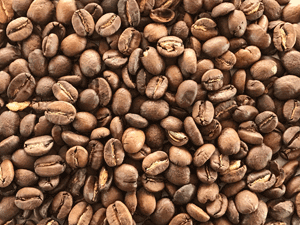Malawi Coffee Beans
-
Sale
- Regular price £14.99
 . Learn more
. Learn more
Bulk Discounts - Buy More, Save More
| Items | Discount |
|---|---|
| 1 - 4 | 15% off |
| 5 - 9 | 20% off |
| 10 - 19 | 25% off |
| 20+ | 30% off |
Add any combination of coffees, teas or gift packs to your cart to save with our bulk discounts. Not available on carts including Subscribe & Save products or selection packs. Cannot be used in conjunction with any other discount codes. Discount is automatically applied at checkout.
All of our coffees stay fresh unopened for up to 9 months. Our teas stay fresh unopened for up to 12 months.
Your guide to Malawi Coffee
The coffee industry in Malawi owes its existence to an enterprising Scottish missionary. In 1878, Dr James Buchanan took a shrub from the Royal Botanic Gardens in Edinburgh to what was then called Nyasaland and planted it in Blantyre, in the south of the country. Conditions quickly proved to be ideal for cultivating coffee and by the end of the 19th century, it was well established as an important crop. The friendship between Scotland and Malawi goes back as far as 1859 when Dr David Livingstone was given a warm welcome by Malawians when he first entered their country. The Caledonian connections live on through the Scotland Malawi Partnership which fosters trade and other links between the countries.
Sections
The Country
The Republic of Malawi sits in southeast Africa, sandwiched between Mozambique, Tanzania and Zambia. About the same size as Portugal, it is far smaller than its neighbours, but in the coffee stakes it punches well above its weight, producing beans of very high quality.
Malawi has a population of 18 million, about 90 percent of them living in rural communities and 50% below the poverty line. Coffee is not the biggest crop: that distinction falls to tobacco, which makes up almost 60 percent of total exports. As well as tobacco, farmers will grow tea, sugar, nuts and legumes, together with their coffee to supplement their income.
Malawian Coffee Farming
While the country was under British rule, most coffee beans were grown in large plantations controlled by a few commercial estates in the Mulanje and Thyolo areas, to the south of Malawi. After the nation gained independence in 1964, ownership of the coffee farms was radically restructured. The Smallholder Coffee Authority established in 1971 saw a reorganisation that didn't really help the sector, but since the 1990s many state-owned enterprises have been privatised, giving small coffee farmers the freedom to run their own businesses. Southern Malawi still features a few big plantations, while north and central Malawi are home to almost 4,000 small operations, many of which are close to Lake Malawi. These operations often have no more than 200 coffee trees each, which work together in cooperatives.
One of the best known is the Mzuzu Coffee Planters Cooperative Union, whose 3,000 members work the slopes of the Nyika National Park, climbing up to the Nyika Plateau to produce award-winning coffees. The union is committed to giving the farmers food security, good education and accommodation - in tune with Malawi's nickname as the ‘warm heart of Africa’. It is a tough task: disease, climatic shifts and unpredictable rains have hit the coffee plantations hard; Mzuzu Coffee Union has replanted many bushes, introduced shade trees to protect the coffee plants and terraced fields to save water and reduce erosion. Their coffee growing efforts are being rewarded. One of its most exceptional coffees is a product of the highly sought-after, and expensive, Geisha.
The cooperatives of smallholders in the union are Misuku, Phoka, Southeast, Nkhata Bay Highlands, Ntischi East and Viphya North.
Coffee varieties in Malawi
Coffee beans grown in Malawi are Arabica varietals including Catimor, Caturra, Mundonovo and Geisha. Most plants in central and northern Malawi are grown at altitudes of 1,200 to 2,500 metres, (3,900 to 8,200 feet) above sea level and harvested between April and September. Several of the estates in the south are working at around 1,000 metres (3,280 feet). Generally, the greater the altitude, the higher is the quality. The processing of the green coffee beans by the smaller farms is natural, or dry, saving the expense and difficulty of using water. The larger estates prefer to wet process their green coffee. Only about 9,000 60kg bags (540 metric tons) are exported annually, making Malawi coffee quite an elusive taste.
What does Malawi Coffee taste like?
Coffee from Malawi shares the characteristics of a cupful from elsewhere in eastern Africa, for example, Kenya and Tanzania. If it says Mzuzu you know it's going to taste great. Full-bodied and smooth, it is lightly acidic and a bit chocolatey. Where Malawian coffee scores well, particularly with its speciality beans, is in having a little more sweetness with notes of berries and citrus fruits.
Our Malawi coffee is a full-bodied medium roast with a lovely fruity aroma and a slight, satisfying acidity. This soft and rich brew can be enjoyed as a refreshing espresso, or equally well as a soothing latte or creamy cappuccino.
Not sure which size bag you need? See How Many Cups each size provides.




